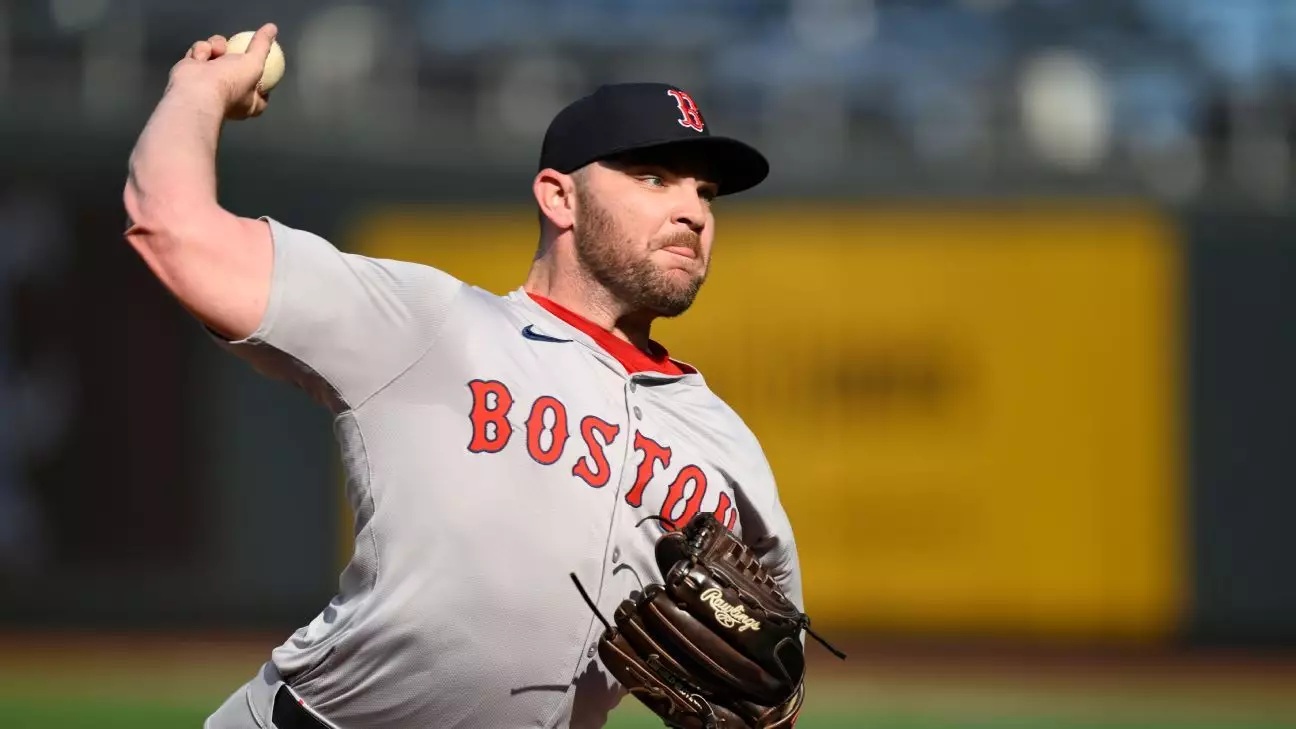The realm of professional sports is often heralded as a sanctuary of athletic prowess and competitive spirit. Yet, beneath the gleaming exterior lies an unsettling truth: athletes today are besieged by a culture rife with toxicity and criticism, driven by an insatiable need for public engagement. Recent events surrounding Red Sox reliever Liam Hendriks bring this issue to the forefront, emphasizing not only the personal toll of such hostility but also the pressing need for change within a system that too often overlooks the humanity of its players.
Hendriks, a talented athlete, recently opened up about the brutal nature of threats directed at both himself and his family. After a tough loss against the New York Mets, he took to social media to address the vile messages he received. His statement, which he shared on Instagram, was a passionate plea for empathy in an environment that can quickly devolve into a cesspool of harassment. The duality of public admiration and hatred encapsulates the precarious existence of athletes who—despite their celebrity—remain vulnerable to the ruthless nature of social media.
The Manager’s Standpoint: Alex Cora’s Advocacy
In response to these unsettling developments, the Red Sox manager, Alex Cora, expressed profound empathy for Hendriks. Cora aptly highlighted the dichotomy of being in the public eye, where the protective veil of fame is often torn away by cruel, unsolicited opinions. His empathetic approach offers a glimmer of hope in addressing the systemic failures that allow such behavior to flourish. “We’re in the public eye, and people feel they have the right to say whatever they want,” he noted, capturing the frustration many feel towards an audience that wields anonymity as a weapon.
Cora’s own experiences further enrich this conversation, as he described navigating the social media storm after missing a game to attend his daughter’s graduation. Watching a father grapple with public scrutiny over something as benign as family demonstrates just how far removed society has become from understanding personal priorities. How often should an athlete be forced to justify their humanity in the face of such judgment? Cora’s advocacy for protecting players strikes a chord—it’s a reminder that behind every uniform is a person deserving of respect.
The Dark Side of Social Media Influences
Hendriks’ and Cora’s forte in the face of criticism reflects an alarming trend where social media becomes a dangerous battleground. As Cora pointedly remarked, the rise of gambling and the heightened stakes surrounding games have birthed a pernicious culture—one where fans, fueled by their own frustrations, lash out at players without the slightest regard for their emotional well-being. “A decision, a pitch, a play, it puts them in a bad spot and they take it personally,” he articulated, underscoring the inherent pressures players face and their impact on mental health.
This speaks volumes about how the decorum of sportsmanship has eroded, with a growing lack of accountability among the digital audience. The emotional ramifications of hateful comments often go overlooked. Athletes carry the burden of performance while battling the psychological toll imposed by strangers who feel entitled to judge their every move. This accessibility of platforms allows toxic behavior to spread unchecked and calls into question the integrity of the fan-player relationship.
Reimagining the Role of Fans in Sports
As the sports landscape continues to evolve, the role of fans must be redefined. The idea that athletes exist purely for entertainment, devoid of personal lives, is a harmful narrative that needs to be dismantled. Fans hold power—both as supporters and as critics. Recognizing the capacity to uplift rather than obliterate should be a collective goal.
Positive engagement between players and supporters could be achieved through campaigns focused on empathy and understanding. Organizations and teams must also play their part in creating a safe space for athletes to express their fears without facing retribution or scorn. Accountability measures surrounding the digital engagements of fans may bolster a more respectful discourse.
In a world where negativity seems to perpetually dominate, it’s crucial to advocate for a culture that celebrates human connection over harmful commentary. The time for compassion is now, and by advocating for systemic change, we can begin to reshape the very fabric of sports culture into one that mirrors the values of unity and respect.


Leave a Reply